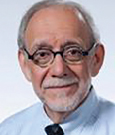Over the past 50 years, great strides have been made in diagnosis, treatment, and survival of childhood cancer. In the 1960s, the probability of survival for a child with cancer was less than 25%, whereas today it may exceed 80%. This incredible cancer success story has been made possible by the work of researcher-physicians such as Robert J. Arceci, MD, PhD, who co-directed the Ronald A. Matricaria Institute of Molecular Medicine at Phoenix Children’s Hospital, in Arizona. Dr. Arceci was killed in a motorcycle accident on June 8, 2015. He was 65 years old.
Dr. Arceci completed his undergraduate studies at Trinity College, Hartford, and received his PhD and MD degrees from the University of Rochester. He then completed his residency in pediatrics and fellowship in pediatric hematology/oncology at The Children’s Hospital, Boston, and at Harvard Medical School.
Following faculty appointments at Harvard Medical School, the Dana-Farber Cancer Institute, and Boston Children’s Hospital, Dr. Arceci became Director of Pediatric Hematology/Oncology at Children’s Hospital Medical Center in Cincinnati.
In 2000, Dr. Arceci became Director and King Fahd Professor of Pediatric Oncology and Professor of Oncology and Pediatrics at the Johns Hopkins University School of Medicine. In 2012, Dr. Arceci was teaching at the Johns Hopkins University School of Medicine when he moved to Arizona, after being recruited to be part of Phoenix Children’s Hospital’s Institute of Molecular Medicine.
An International Authority
He was considered an international authority in many challenging areas of clinical pediatric oncology, including the diagnosis and treatment of leukemia and Langerhans cell histiocytosis. He has served on a variety of committees in the Pediatric Oncology Group; the Children’s Cancer Group; and the Children’s Oncology Group, including Chairperson for the Myeloid Leukemia Committee and Vice-Chair of the Biology and Therapeutics Translational Committee.
As an avid motorcyclist, Dr. Arceci married two of his passions by exploring the desert landscape of Arizona and participating in charitable motorcycle rides to benefit pediatric medicine. “I love motorcycles because really, everything else is just transportation,” he was fond of saying.
About his life’s work in pediatric cancers, Dr. Arceci said, “Children are going to be the people who help the adults. They are going to save us. I think it is truly phenomenal.”
Dr. Arceci is survived by his wife and two children. ■


